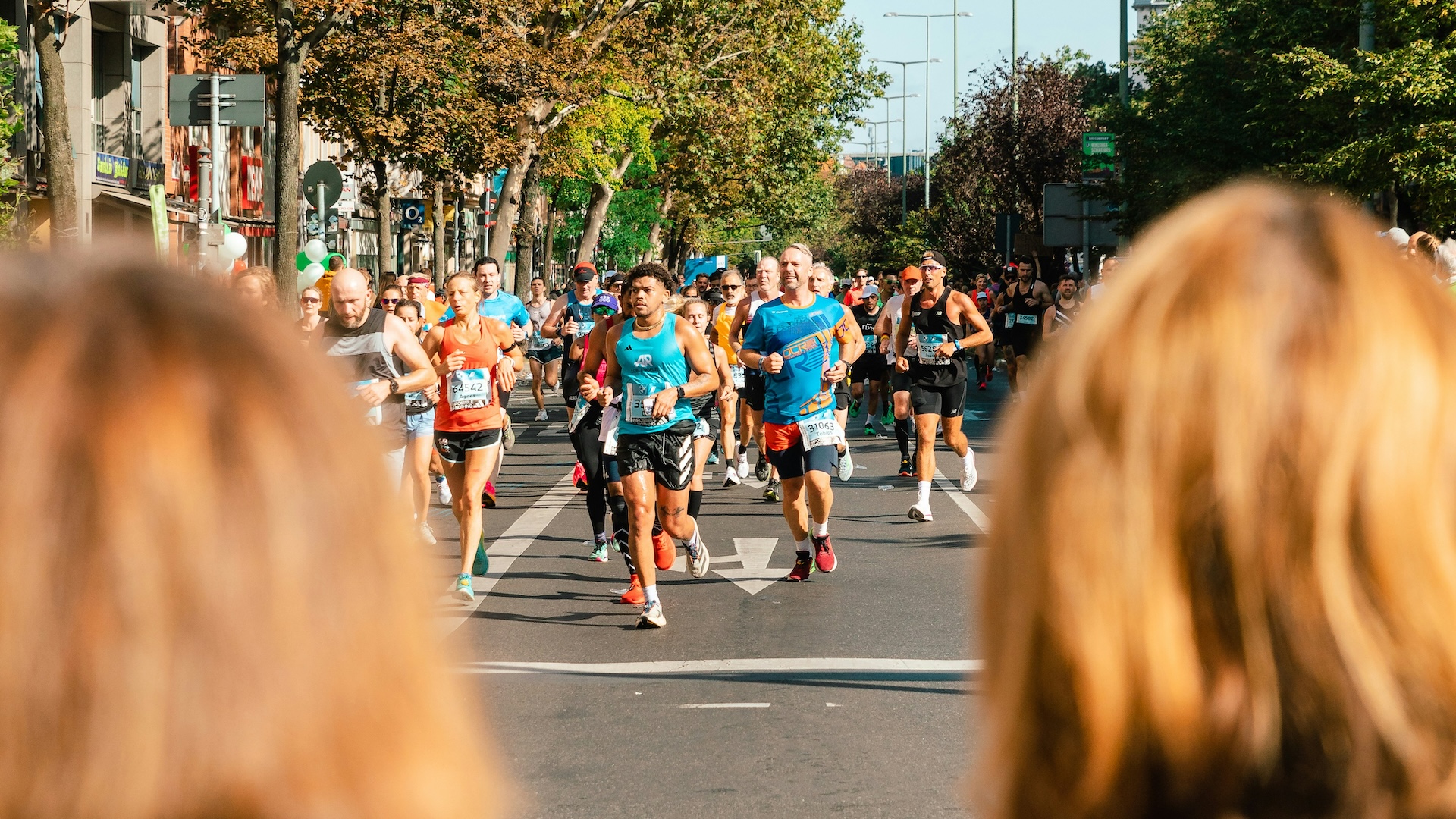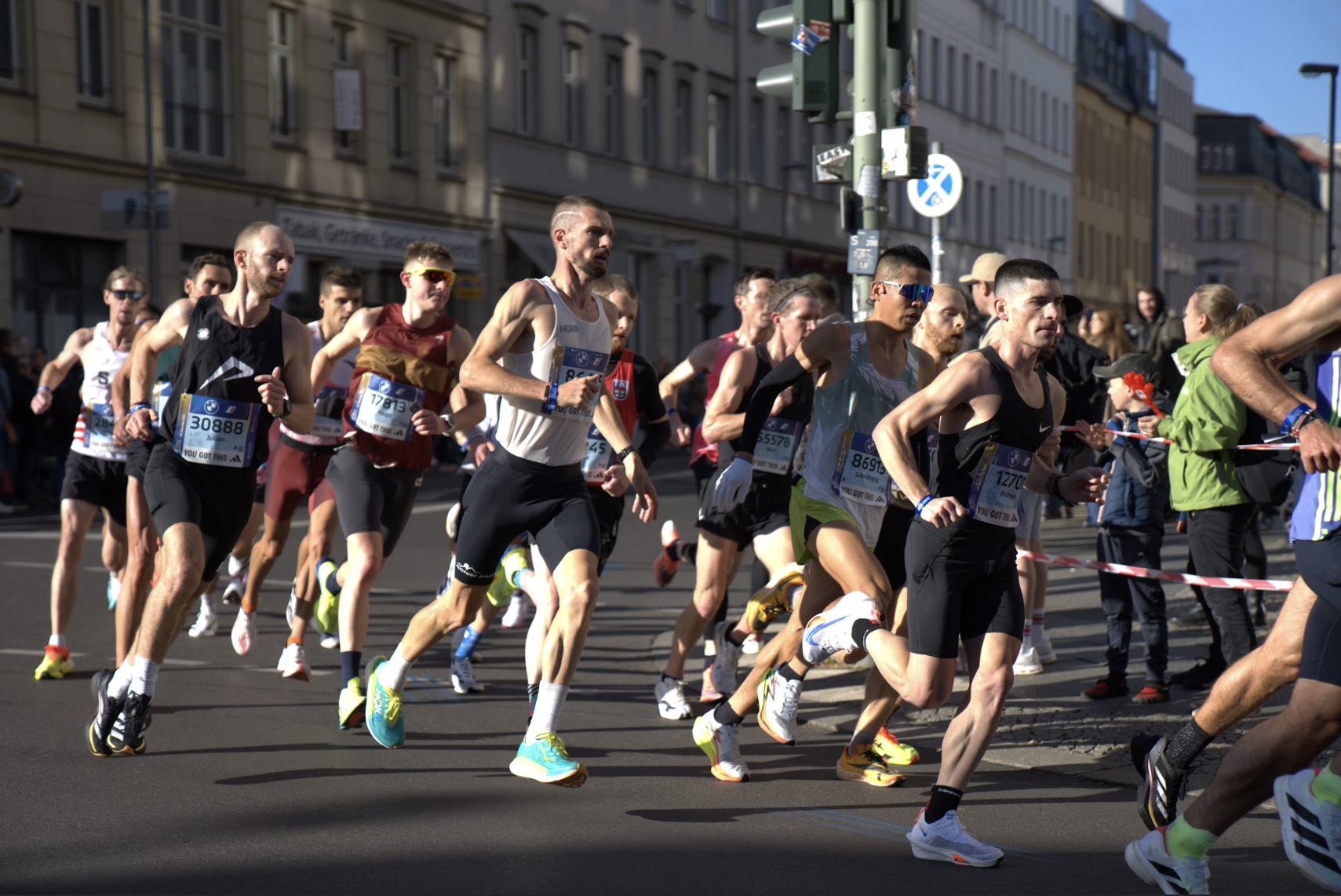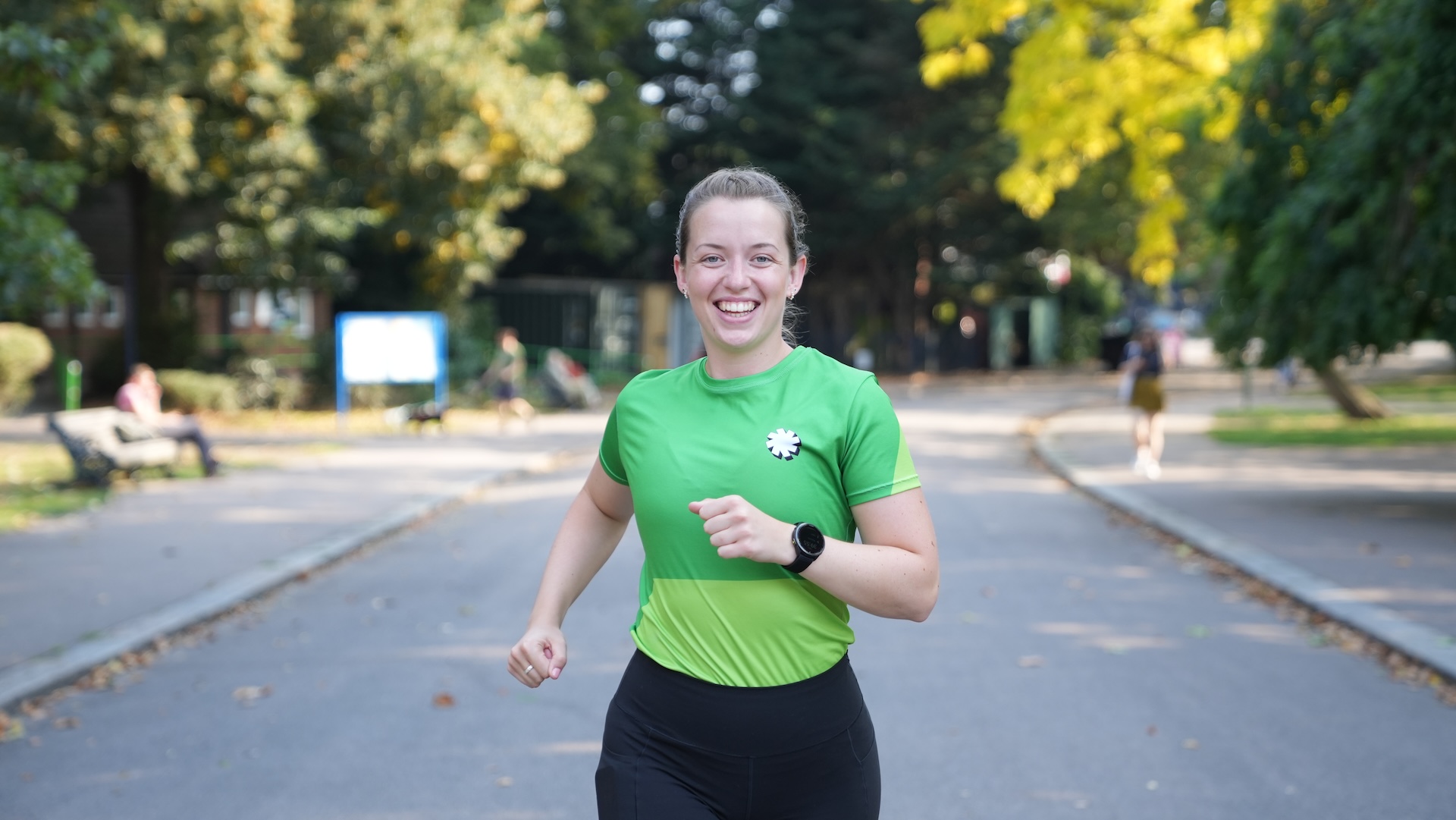Why Do We Get Sick After Running A Marathon?

Sometimes called ‘runner’s flu’, in the days after a marathon some runners get ill with cold-like symptoms, adding a scratchy throat and stuffy nose to their achy legs.
But why are we more likely to get ill after running a marathon and what can we do to try and avoid it?
KEY THINGS TO KNOW ABOUT ‘RUNNER’S FLU’ AND WHY WE GET ILL AFTER MARATHONS
- Moderate exercise is great for improving our immune system, but taking on long endurance events like a marathon temporarily suppresses our immune system
- Behavioural factors increase our risk of illness because busy marathons see many runners travel to the race, and we spend a lot of time in close proximity to people breathing heavily, sweating, coughing, and more (in other words: there are lots of germs around when our immune system is already compromised)
- Trying to reduce stress, eating and hydrating well, and using good hygiene practices (like washing hands, not sharing bottles, wearing a facemask) can reduce your risk of illness
IF EXERCISE IMPROVES OUR IMMUNE SYSTEM, THEN WHY DO WE GET SICK AFTER A MARATHON?
Lots of studies have shown how low and moderate intensity exercise is great at strengthening the immune system as the body builds up a tolerance to stress.
But all those studies reveal a bell curve of exercise’s effectiveness at fighting illness, meaning we can’t just run for hours every day and develop a superhuman immune response, and intense and prolonged hard exercise of over 90 minutes decreases the body’s immunity response.
There are lots of reasons for this, including a reduction in white blood cell count and an increase in cortisol, the ‘stress hormone’, but overall our body is busy dealing with the considerable physical impact of running and recovering, and that requires a compromise in resources, so our immune system is less protected and less able to fight off infections and diseases.
And this doesn’t just happen in marathons. We could have a suppressed immune system for seven days after intense exercise, so during marathon training we always need to prioritise good recovery, like eating lots of carbohydrates, hydrating well, focusing on sleep, and having good hygiene protocols around washing hands.
Several studies have shown that the most common reason a professional athlete misses a training session is because of an upper respiratory tract infection, like a cough or cold. In fact, runners with higher training volumes are more susceptible to illness after a marathon than those with lower overall mileage. Training fasted or in an energy-depleted state can also suppress our immune system, so make sure you’re always well-fuelled and always eat carbs as part of your recovery.
Running a marathon is a huge effort, and during that time and in the hours before and after, our immune system is weakened as the body deals with helping it recover.
WHAT HAPPENS WHEN WE RUN A MARATHON?
The run is the final few hours of weeks of build up, and the final few days can be stressful for many people as we head to races and deal with the tapering and maranoia, while we don’t sleep well and our carb-heavy diet can lack some nutrients.
Many of us travel to marathons, so with thousands of people converging on a city for a race, runners and supporters in mass-participation events are at an increased risk of illness due to greater exposure of pathogens in the environment.
A lot happens to your body during the marathon. You deplete your energy stores, you’re dehydrated, you’re exhausted, you’re breathing heavily and sweating and not thinking about personal hygiene, and you’re also excited that you’ve done it so you go out and celebrate with others, maybe you have a few alcoholic drinks, and eat junk food.
There is no single thing which increases your chances of getting ill after a race, and it’s a big combination of different factors. If this all sounds like a downer and puts you off, then don’t worry as we don’t all get blocked noses and sore throats after a marathon, and it’s estimated that between 10% and 20% of people may get sick.
TOP TIPS TO AVOID GETTING SICK AFTER A MARATHON
Follow the same general advice for reducing your chances of getting ill as you’re typically just going to pick up a common upper respiratory tract infection.
Avoid contact with people who are sick (this might be difficult with thousands of people near you before and during a race), and try to protect yourself by wearing a facemask, washing your hands well, using hand sanitiser, and avoid sharing personal items like bottles or glasses.
Prioritise sleep and try to feel as rested as possible to try and reduce your stress levels.
Eat well. This includes lots of protein, fruits and vegetables, but carbohydrates are the most important as the body’s immune system requires them to help us recover. One of the reasons we feel more tired when we have a cold is that our energy is being used to try and make us better, so continue eating carbs and you may improve your recovery – that’s where the saying ‘feed a cold’ comes from. Taking on enough extra energy during a race in the form of gels and sports drinks can also help.
Avoid alcohol before a run (and ideally after, but we all want to celebrate, right?!). Leading up to a race, you could drink a few alcohol-free beers as research says it can reduce inflammation and respiratory tract infection because of natural polyphenols from malt and hops (it’s also good to help with a carb load and to stay hydrated!).
Some supplements may help. Omega 3 and high dose vitamin C, vitamin B12 and vitamin D, iron, prebiotics and probiotics could all be beneficial, but don’t just add these in final days before a race and you should take these during your training if you think your body may be lacking in them.
WHAT TO DO IF YOU GET SICK?
Runner’s flu is typically just an upper respiratory tract infection, so treat it the same way as you would when you have a common cold and get plenty of rest, drink fluids and eat carbs. Of course, seek medical advice if you have bad symptoms or the illness becomes more serious. And have a few days off from running to help you feel better.
***
Have you had runner’s flu before or been ill after a race?



























Running News
Ingebrigtsen Stars at World Athletics Indoor Championships 2025 – Plus All The Winners!
Sam Ruthe Is First 15-Year-Old To Run A Four-Minute Mile!
Eliud Kipchoge Will Run The 2025 Sydney Marathon!